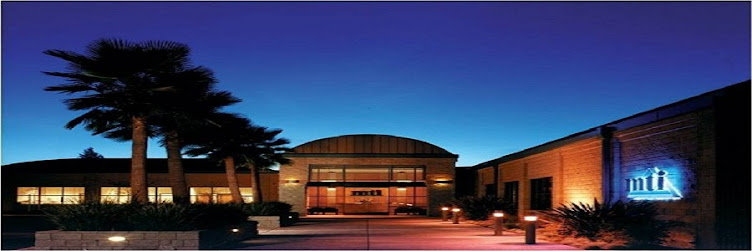Do you have an eye for color and design, and enjoy apply makeup to yourself and your friends? When you read a fashion magazine, do you focus more on the makeup than the clothes? Or, when you watch a movie, do you like to see what lipstick color the actresses have on —or check out their total makeup look? If you’ve always had an interest in —and a talent for — makeup application, you may think about becoming a professional makeup artist.
Makeup artistry is a competitive business that requires professional training, but with the proper education and initiative, you may land yourself a job as a professional makeup artist. Here are some things you can do to become a professional makeup artist:
Hone your skills. Apply makeup to yourself and friends. Practice on people of different ages, and on those with different skin tones and textures. Observe the lines and angles of the face, as well as the bone structure. Experiment with different brands and textures of makeup to see what gives the best results. Try using a variety of brushes and sponges to discover what works to achieve the look you’re going for. Look to see what techniques, color and texture work under various types of lighting.
Research different looks. Pour through fashion, wedding and fan magazines to discover the looks you like — or those you’d like to try recreating. Perhaps clip photos and add to an album or inspiration board. You might also watch “how-to” videos and then practice on your own. Another place to check out makeup trends is on social media and makeup brand websites. Pay attention to what popular celebrities are doing to stay on top of the latest trends.
Work at a department store’s makeup counter. If you wear your makeup well and think you have a pretty good eye for what works on other people, try to get a job at the makeup counter of a department store. You’ll have a chance to test merchandise and may even have the opportunity to try it out on customers.
Seek professional training. Getting professional cosmetology training from a facility like Paul Mitchell the School is vitally important to your career. You’ll learn advanced techniques, such as airbrushing, that professionals use for flawless application. In addition, you’ll train to apply makeup for special occasions like weddings, as well as for film and TV, special FX and corrective makeup application. When you study Advanced Makeup at Paul Mitchell the School, you’ll get hands-on training from industry professionals who will prepare you for a career as a professional makeup artist. Additionally, you’ll get help in creating a professional portfolio — essential to finding work in the field.
Once you’ve completed your cosmetology training and are armed with the skills you need to work in the makeup field, there are a few things you can do to find the best job for you.
Determine which industry you’d like to work in. Do you want to work behind the scenes in film, TV or theater? Would you prefer to work in the fashion industry doing makeup for models for photo shoots? Perhaps you want to specialize in something like wedding makeup. The options are there: You just need to decide which path to follow.
Network like crazy. Mingle with stylists and designers. Go to bridal expos. Get your name out there and build your personal brand. Perhaps volunteer to do the makeup for your friend’s wedding. Do you live in a town with a local theater group? Offer your services. If you’re interested in working in film, contact your city’s casting offices and tell them you’d like to help out when movies will be filming in your area. Contact your local TV station and see if there may be an opportunity there. Let people know what you can do and what you want to do because you never know which connection will be the one that launches your career.
Create a portfolio that showcases your creativity and versatility. While you are training at Paul Mitchell the School, you’ll begin creating your portfolio. It’s very important to feature professional photos. Splurge on a good camera and learn to use it, or hire a professional photographer to take shots of your work. Make sure you have digital photos, too, because you can use them to market yourself.
Promote yourself online and via social media. If you don’t have an Instagram account or a professional Facebook profile, now would be the time to open or create one. Put your portfolio online, start a blog and/or get a website. The internet is one of the least expensive platforms for reaching a vast number of people in a short period of time. Work it as well as you can!
Keep learning. You may have finished your initial training, but there’s always more to learn. Go to seminars and trade shows to learn new techniques and network with more professionals in your industry.
According to O*NET Online, the employment outlook for makeup artists is projected to grow 10–14% through 2026 — higher than the growth average for other industries. Along with comprehensive training, practice and persistence can really pay off — and lead you to the career of your dreams.
To learn more about training for a career as a professional makeup artist, contact Paul Mitchell the School.
The post How to Become a Professional Makeup Artist appeared first on MTI College.
from
https://mticollege.edu/become-a-professional-makeup-artist/
